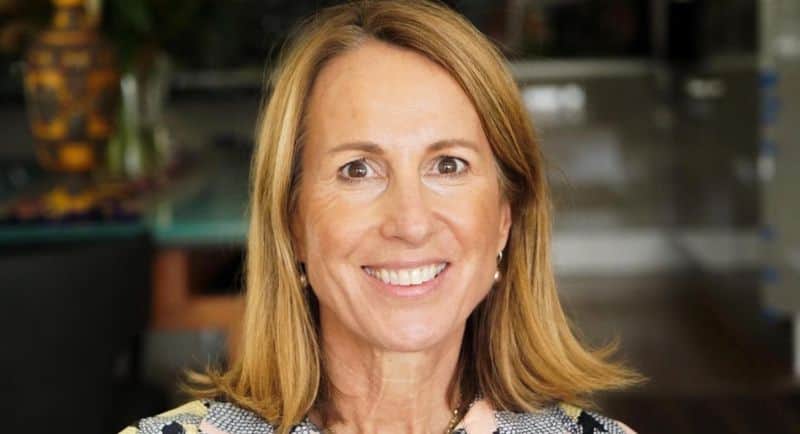55/Redefined is an organisation that champions talent over 50 and tackles ageism by advocating for age diversity, positivity, and inclusion across all areas of life.
Belinda Basil-Jones joined 55/Redefined as chief of staff in November and relocated to the organisation’s base in London, UK, earlier this year.
Basil-Jones spoke to Mediaweek about the importance of championing mature members of the industry, how agencies and marketing companies should address ageism and Sparrow’s AAAG.
55/Redefined and its different focus areas
As a group brand, 55/Redefined comprises of three businesses that focus on different areas, Basil-Jones explained.
Work/Redefined supports employers in creating more age-inclusive workplaces. She said: “Our training and age accreditation programs are designed to reduce conscious and unconscious biases and help decision-makers recognise the immense value in attracting, training and retaining this largely untapped talent pool.
Jobs/Redefined is a jobs board for people over-50s that connects candidates with age-inclusive employers. She noted that it is currently only offering UK-based roles but will be expanded internationally in the future.
Rounding out 55/Redefined’s key areas is its membership platform Life/Redefined, which offers inspiration and ideas across all aspects of lifestyle for over-55s, ranging from fitness to finance, home to holidays and more.
“Through this part of our business, we also celebrate the ‘Redefiners’ – over-50s that are shaking things up and doing amazing work – in the hope it will give inspiration and impetus to others to do the same. We recently had the privilege of interviewing Richard Branson for this series.”
Basil-Jones on stepping into the role of chief of staff
Basil-Jones has notched a few months into her role as chief of staff of the start-up business, a role that sees her be a “jack of all trades”.
In the role, she oversees various functions of the company that do not yet have a dedicated person in charge of the area, including HR, legal, IT, training, internal comms and so on.
“I’ll also be managing our Age Pioneers program, an organised Action Panel of senior leaders across all industries that comes together to debate, share best practice and solve the challenges arising out of an ageing population and what this means for the future of work,” she said.
Basil-Jones explained that her role is ideal for someone like her, aged 50+. “it draws upon a very wide range of experience and skills that only someone who has been in the workforce for several decades could possibly have mustered,” she said.
“55/Redefined encourages members and business partners to ‘redefine’ what 50+ means and banish outdated career path and retirement constructs.
“This role is giving me the opportunity to do exactly that – I have joined a new company, in a new industry, on the other side of the world (in London) at the age of 60,” she said.
“It will be a fantastic adventure, and in many ways, this is the ideal time of my life to be doing it,” Basil-Jones added.
How the industry should address increasing numbers of agency personnel aged over 50
In his past columns, Sparrow has cited that across the world, just 5% of agency personnel are over 50.
See also: Sparrow’s Nest: Ageism – Take a stand, join Advertising Ageist Action Group
See also: Sparrow’s Nest: The importance of keeping experienced talent in the industry
Basil-Jones described the statistic as an “alarmingly low figure”, particularly in the context of the projected growth of this demographic over the next three decades.
“It suggests that the industry is failing to acknowledge one of the most significant social transformations of the 21st century, which will impact nearly every sector of society,” she noted.
Basil-Jones said that by 2050, the working age (16-64) population is set to shrink by between 21-28% across all Western Countries, which will create a shortfall of more than 50 million skilled, university-educated workers.
“Meanwhile, the over-60 population is forecast to grow by over 40% during that period, so it’s vital that ageism is tackled now to help to future-proof the industry,” she pointed out.

Basil-Jones noted that businesses with strong multigenerational teams have a diversity of perspectives and experiences which enhances their ability to attract and engage authentically with a broad range of employees and customers.
“We are partnered with the UK arm of dentsu, one of the largest global marketing and advertising agency networks in the world, which is investing in a range of initiatives to improve representation of over-50s in the workplace,” she said.
Basil-Jones highlighted dentsu, one of their age-inclusive accredited employers, has made commitments to investing in technical training and reskilling for those over-50s via an apprenticeship programme aimed at re-training this age group across the company. She also noted that dentsu has reviewed its recruitment processes to ensure they are inclusive and accessible to people over 50.
Basil-Jones noted that 55/Redefined recommends that companies review their retirement and retrenchment policies and processes to ensure that they are not designed to push employees out of the workforce at a certain age.
“Our research has found that many feel pushed out as they near or hit retirement age, despite wanting to remain in the workplace,” she said.
“Through training programs, we can bust the myths and stereotypes about age. As an example, 37% of employers cited health or illness as their major reason for not employing older workers. The actuality is that this age bracket is far less likely to take a sick day than younger generations.
“Similarly, older workers often miss out on jobs or training because they are not considered by employers to be committed – or available – long-term, however, they are, in fact, less likely to depart of their own accord than younger workers.”
“I spent a good portion of my early career in advertising, and feel it is especially important to build a more age-inclusive approach in this industry. At 55/Redefined, we are changing the narrative on ageing through content such as this video, and the media & communications industry is ideally placed to influence perceptions of people aged 50+ in a similar way,” Basil-Jones added.
What agencies and marketing miss out on when overlooking older people
Mature members of the industry have plenty to offer, and Basil-Jones noted that agencies and marketers that, by overlooking them, they are missing out on a valuable talent pool during the current global talent shortage.
“Older employees play a critical role in the handover of knowledge and mentoring – younger generations are missing out on this valuable contribution,” she said.
“From a marketing perspective, the over-50s present an enormous economic opportunity. People aged 45+ hold 78% of Australia’s wealth and are the fastest-growing segment of the economy, and yet most businesses are missing out on the spoils of this phenomenon because they don’t have a strategy in place to address and engage the ageing consumer population,” Basil-Jones added.
Basil-Jones on the AAAG means and how the industry should address ageism
To bring light to ageism in the industry, Greg “Sparrow” Graham launched the Advertising Ageist Action Group (AAAG) last year to tackle age discrimination and to make a difference in the space.
Basil-Jones applauded Sparrow’s pursuit of the issue and drive to launch the industry action group.
“It is a vital industry to turn around, because it has such a strong influence on the perceptions of older people in society at large, through their representation in media and advertising,” she said.
Basil-Jones noted that the launch of the AAAG comes as the industry faces the perfect storm of a talent shortage with a shift in population.
“Businesses are going to need to engage effectively with older workers and consumers never like before, so it is an ideal time to drive change,” she said.
Basil-Jones noted that the agency needs to “get moving” when it comes to taking action against ageism.
“There has been fantastic progress in most areas of diversity in recent years, but age has been almost completely missing from these initiatives,” she said.
“Ageism is the one ‘-ism’ that has the potential to impact every single one of us, so it is in the interests of younger generations to stamp it out before it catches up with them, too,” Basil-Jones added.
–
Top image: Belinda Basil-Jones
